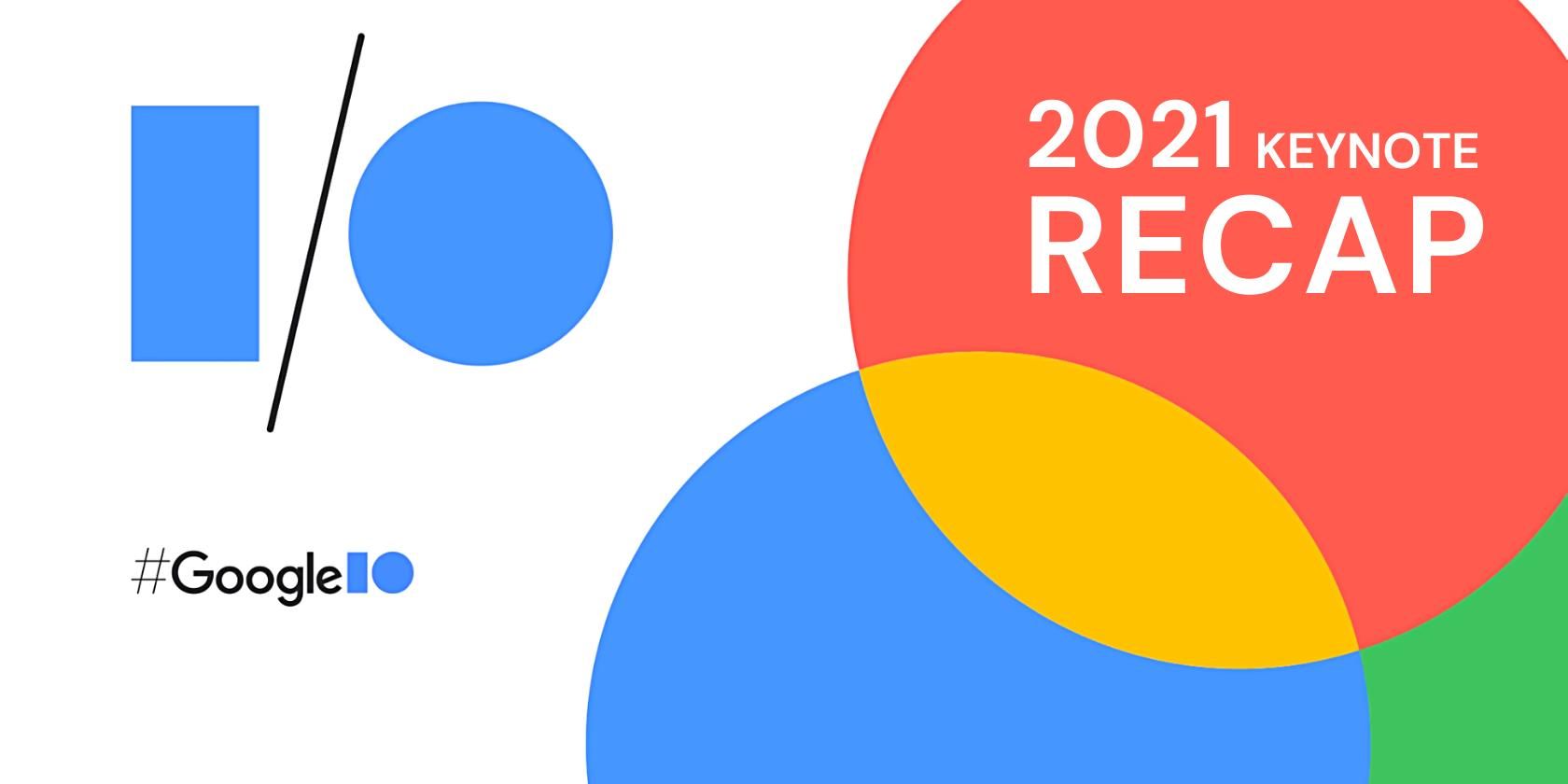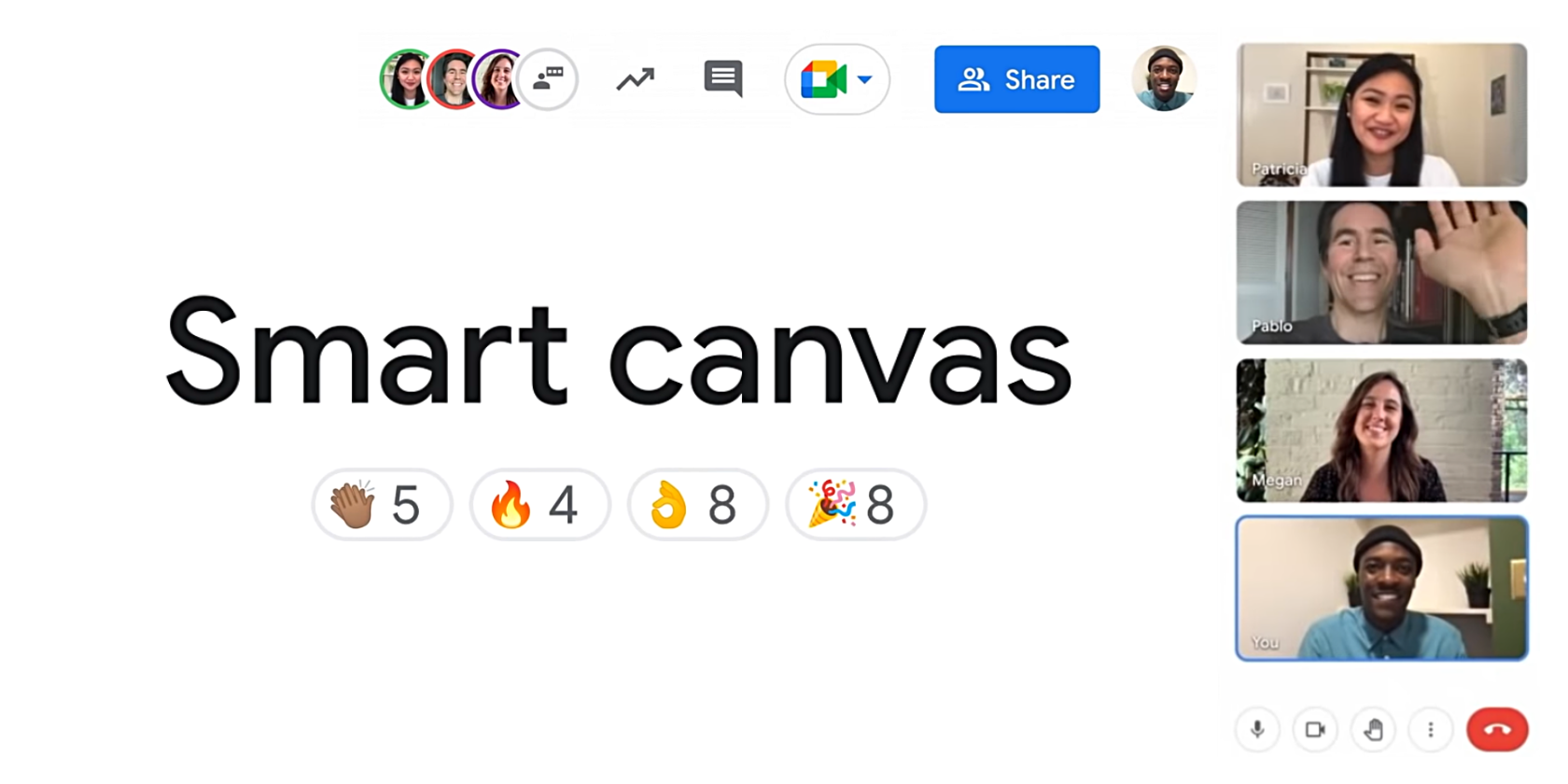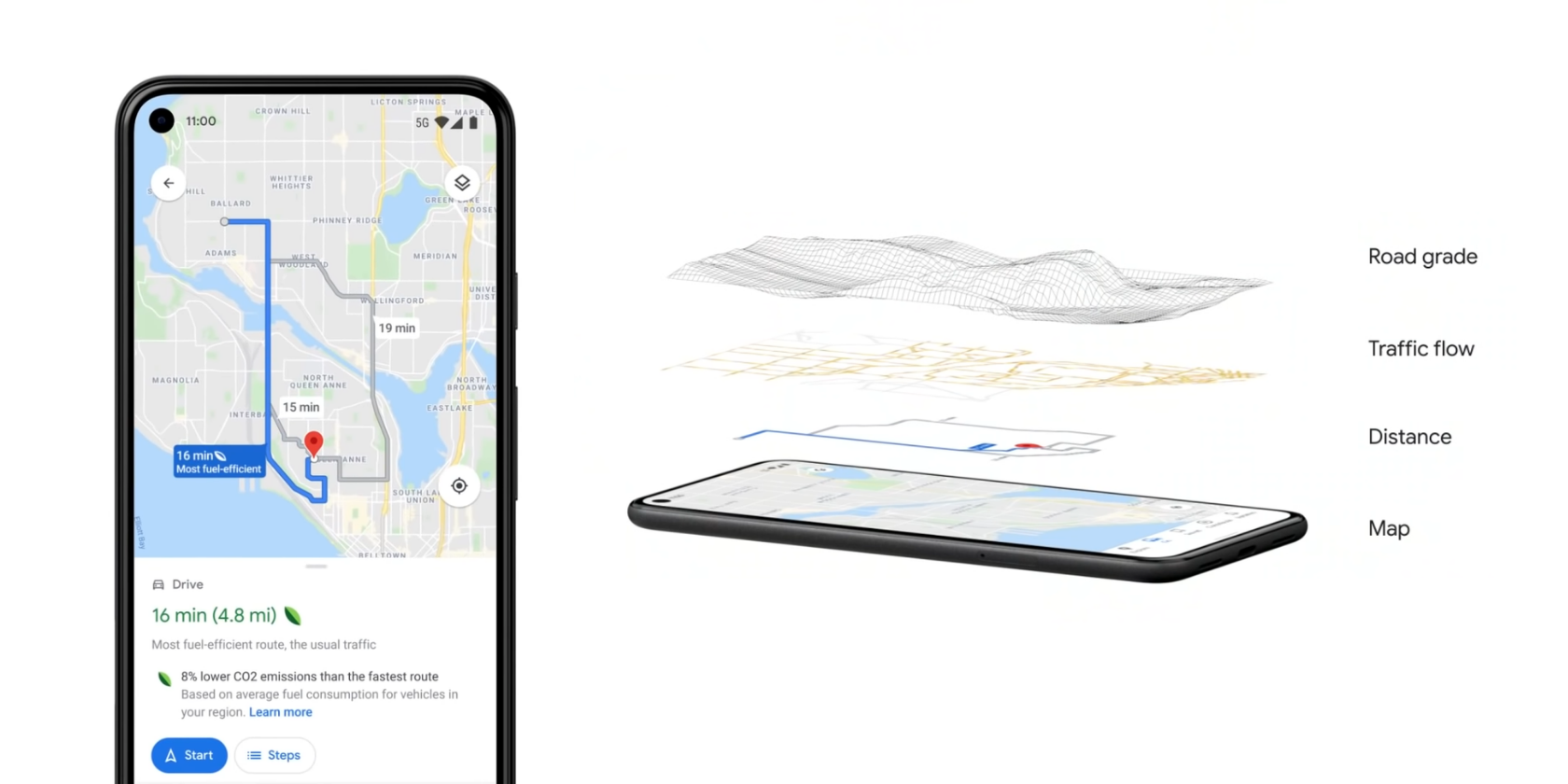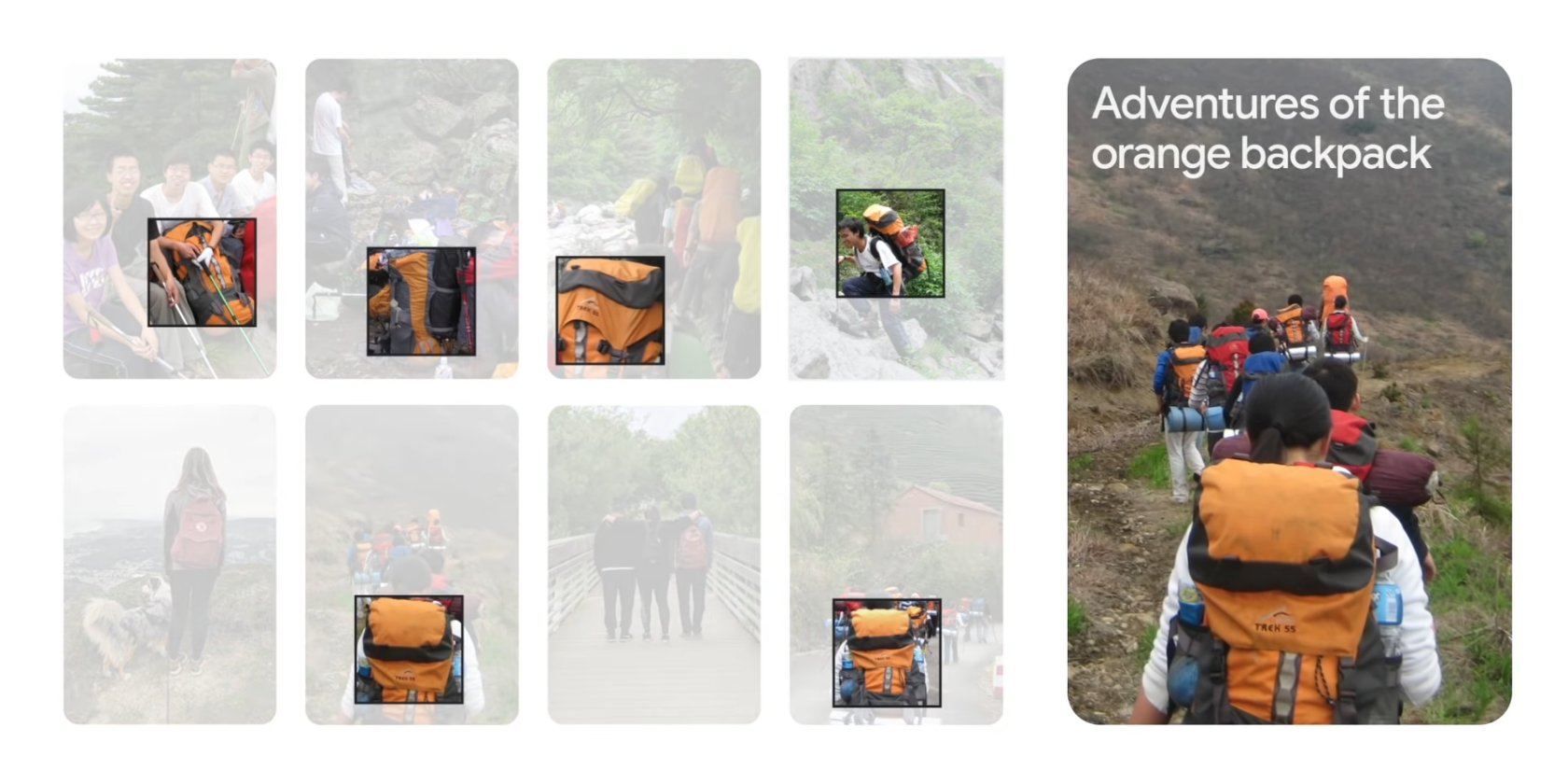After having to cancel the event in 2019 due to the COVID-19 pandemic, Google came back with its I/O Developers Conference in 2021. The all-virtual event took place from May 18-20.
If you don't care to watch the entire event, we'll round up all the essential reveals announced at the Google I/O 2021 and discuss what they mean for you.
1. Smart Canvas Joins Google Workspace
Following the disaster that was 2020, Google CEO Sundar Pichai began the keynote by addressing the role Google played in those times of need. Google products such as Classroom, Meet, Docs, Sheets, and Slides helped businesses, schools, and governments around the world to continue their operations despite restrictions.
But having to constantly switch between apps can be really cumbersome.
Smart Canvas is Google's answer to that problem. It is designed to unify remote collaborations and streamline them across Google Workspace. Think of it as a bundle of multiple small inventions. These include checklists, table templates, and pageless formats in Docs; timeline view in Sheets; live captions and translations in Google Meet, and more.
You can now present your doc, sheet, or slide into a Google Meet call or start one directly from within Workspace products. This allows you to get your team's feedback in real-time. It will then be easier than ever for your team members to brainstorm ideas, cast votes, and make decisions.
2. Material You Revamps Android 12's UI
A wonderful question raised by Matías Duarte, a speaker at Google I/O, was "Instead of form following function, what if form followed feeling?" This summarizes Material You's goal perfectly: to give people the power and tools to co-create one-of-a-kind designs that reflect their unique identity.
Material You is a reboot of Google's long-running Material Design and is baked right into the heart of Android 12. While earlier versions followed a more one-size-fits-all approach, Material You puts you in the driver's seat so you can customize your device to how you view as most beautiful. Using Color Extraction, for example, you can create custom palettes for your Pixel device based on the colors in your photos.
As Creative Lead Christian Robertson puts it, this makes devices "feel as individual as the people who use them." The smart use of color, light, texture, motion, shadow, shimmer, shape, responsiveness, and smooth interactions between them all gives Android 12 a radical new look and feel. It's open and invites you to play around with it.
3. LaMDA Makes AI Conversational
Watching LaMDA in action was a lot like watching Google Duplex book a reservation at a local restaurant back at Google I/O 2018. Essentially, LaMDA is Google's answer to making AI more human-like.
As Pichai puts it, LaMDA is an open-domain "language model for dialog applications" that helps AI converse better by understanding the context of natural language.
For instance, when you ask your friend "I think I really need to burn off some steam. I've been working tirelessly this year. Do you know any good places to go backpacking?" You don't expect them to just hand you a list of all the places they think will work. You expect an answer that is built on personal experience, considerate to the intent of your question, easily understood, but still open-ended enough to keep the conversation flowing.
This is what LaMDA is changing. It's a next-gen AI that better understands the patterns and nuances of natural language. This means a better understanding of your queries, human-like responses, more accurate translation, and advancements in carrying out interesting full-length conversations with Google Assistant.
4. Google Maps Is Now Safer, Simpler, and Smarter
Elizabeth Reid, a speaker at I/O, mentioned Google's plans to make 100+ improvements to Google Maps in 2021.
For instance, Live View, an AR feature launched in 2019, is expanding. Now, you can use it not just to navigate, but also to explore your neighborhood and view details about local shops and restaurants. This information includes recent reviews, photos, and Area Busyness indicators.
In addition to this are virtual street signs and key landmarks that allow you to better navigate complex intersections and street corners. If you struggle with navigation, Indoor Maps will help in places such as airports, train stations, and malls. Following this are a lot of small but important improvements, such as a more detailed and tailored street map that recommends places of interest based on your time and location.
Safer Routing helps detect potential danger points in your journey due to uncertain roads, weather, or traffic conditions to avoid accidents and cut travel time. Eco-friendly routes gives you the option to take the most fuel-efficient route to help reduce car emissions and minimize fuel consumption.
5. Google Photos Helps Relive Memories
Here's a not-so-fun fact: most photos that people snap and keep in Google Photos are never revisited. But we all still store them, in the hopes that we may want to come back to them sometime later. With Little Patterns, you don't have to.
This new feature scans your images to identify common patterns and puts them together. The images are then resurfaced to you to tell a fuller, more meaningful story. This cuts down on time spent searching for photos that matter to you, and makes them easily shareable with loved ones.
To avoid reliving an unwanted memory, you can delete a photo from it, rename it, or remove it entirely.
With Cinematic moments, you can now turn your near-identical photos into vivid animated moving pictures. Using computational photography, machine learning, and neural networks, Google Photos will synthesize the movements between two shots and add new frames in between to fill in the gaps.
The end result is a stunning and immersive moving image. For moments that you want to keep private just to you, you can store them in a Locked Folder, a separate passcode-protected space. Photos and videos saved here will not appear when scrolling through Google Photos or any other apps on your device.
6. Miscellaneous Advancements at Google I/O
Let's wrap up with a few smaller, but still neat, announcements from Google's 2021 event:
- Google's new Multitask Unified Model (MUM) algorithm will help Google Search better interpret natural language and answer complex, nuanced questions that don't have obvious answers.
- Google's Password Manager will create, protect, and change your passwords instantly across various accounts and alert you if any breach is found.
- Android 12 will launch later in 2021 and have tighter integration to make transitioning between devices more seamless. For instance, it will allow your phone to directly communicate with your laptop or TV.
- Android Auto will now work on over 100 million cars. Digital Car Key allows you to lock, unlock, and start your car directly from your phone by using NFC and ultra-wideband technology.
- Project Startline, a new technology still in early development, uses 3D imaging to allow people to communicate as if in real life, imitating the features of an in-person conversation.
- Google plans to work together with Samsung and Fitbit for the next line of Galaxy smartwatches. It will combine Tizen and Wear OS to bring greater battery life, performance, health and fitness services, UI fluidity, and ease of creating compatible apps for developers.
- Google's computational photography will become more inclusive, optimizing color and white balance to adjust for darker skin tones and bring out natural browns.
- Google's new AI-powered dermatology assist tool uses machine learning to identify common skin issues and find relevant information to learn more about the skin condition.
- Google is collaborating with Northwestern Medicine to conduct an investigative device research study. The intent is to understand AI's application in the breast cancer screening process.
- Google announced plans to operate on fully carbon-free energy 24/7 by 2030.
A More Helpful Google for Everyone
Google is working on a lot of exciting advancements. While most of the new technologies are enhancements to older ones, some feel like sci-fi coming to life. As Google defines it, the parameters it sets to judge and measure any new technology's usefulness are knowledge, success, health, and happiness.
With so many new technological capabilities releasing in 2021 alone, there's a lot to get excited about.
Image Credit: Google via YouTube




